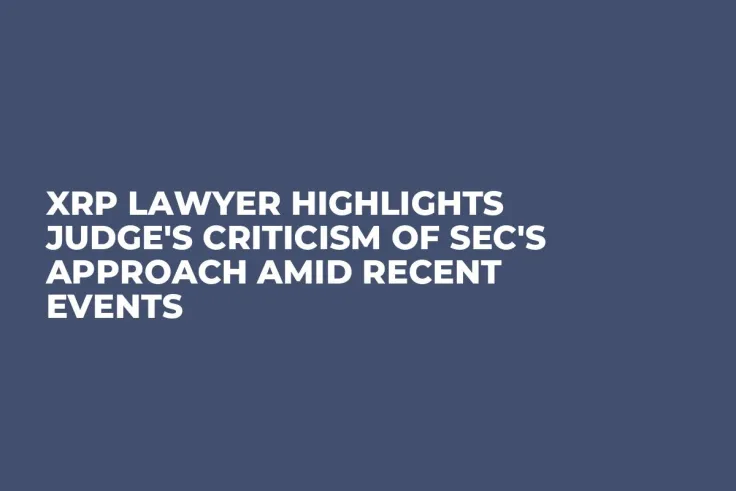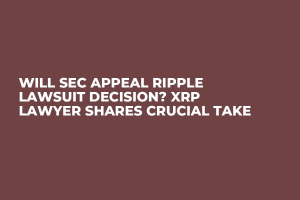
Disclaimer: The opinions expressed by our writers are their own and do not represent the views of U.Today. The financial and market information provided on U.Today is intended for informational purposes only. U.Today is not liable for any financial losses incurred while trading cryptocurrencies. Conduct your own research by contacting financial experts before making any investment decisions. We believe that all content is accurate as of the date of publication, but certain offers mentioned may no longer be available.
In recent legal rulings, judges have criticized the U.S. Securities and Exchange Commission's (SEC) approach to cryptocurrency regulation, particularly in its classification of digital assets as securities.
In a thread of tweets, attorney and XRP enthusiast Bill Morgan highlights these criticisms, which mark a pushback against the SEC's stance on crypto assets.
First, Morgan highlighted XRP's historic win in the SEC v. Ripple case, when Judge Torres stated unequivocally that the XRP token itself is not a security. This decision dealt a significant blow to the SEC’s argument that XRP, simply by existing as a digital asset, falls under securities regulation.
As highlighted by Morgan, Judge Orrick in SEC v. Payward Inc (Kraken case) told the SEC that "orange groves are no more securities than cryptocurrency tokens are," delivering a pointed critique of the SEC's approach.
Judge Orrick warned the SEC to maintain a clear distinction between the nature of the crypto asset itself and sales of the asset.
Morgan noted that in the SEC v. Binance, Judge Jackson completely rejected the SEC’s embodiment theory that the crypto token is the embodiment of an investment contract, rather than possibly being the subject of an investment contract under certain circumstances.
Recent events
So far this year, the SEC has sent Wells notices, filed lawsuits or reached settlements with a number of crypto firms on Ethereum and decentralized finance, including ShapeShift, TradeStation and Uniswap.
Centralized exchanges and trading platforms Coinbase, Kraken, Binance and Robinhood have all been involved in legal disputes with the regulator.
Earlier this month, Ripple scored a significant win as the court slashed the SEC's demand by nearly 94%, ordering Ripple to pay $125 million, thus putting an end to the nearly four-year legal battle.
In the most recent development, cryptocurrency marketplace OpenSea has been added to the SEC’s list of targets, as the regulator extends its crackdown on the sector.
The company’s CEO stated in a post on X on Wednesday that the U.S. Securities and Exchange Commission issued a Wells notice against OpenSea, alleging that the non-fungible tokens, or NFTs, sold on its platform are securities. The OpenSea chief characterized the SEC's recent action as a "move into uncharted territory."

 Alex Dovbnya
Alex Dovbnya Dan Burgin
Dan Burgin